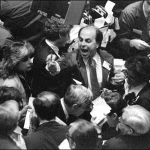Foreign direct investment has been celebrated for many years as a driver of economic growth in emerging and transition economies. It offers the flow of capital, better technology, and increased access to world markets. But “as appealing as the potential benefits seem, “how might foreign investment be problematic for a transitioning economy?” Is an important …
Continue reading “How Might Foreign Investment Be Problematic for a Transitioning Economy?”










